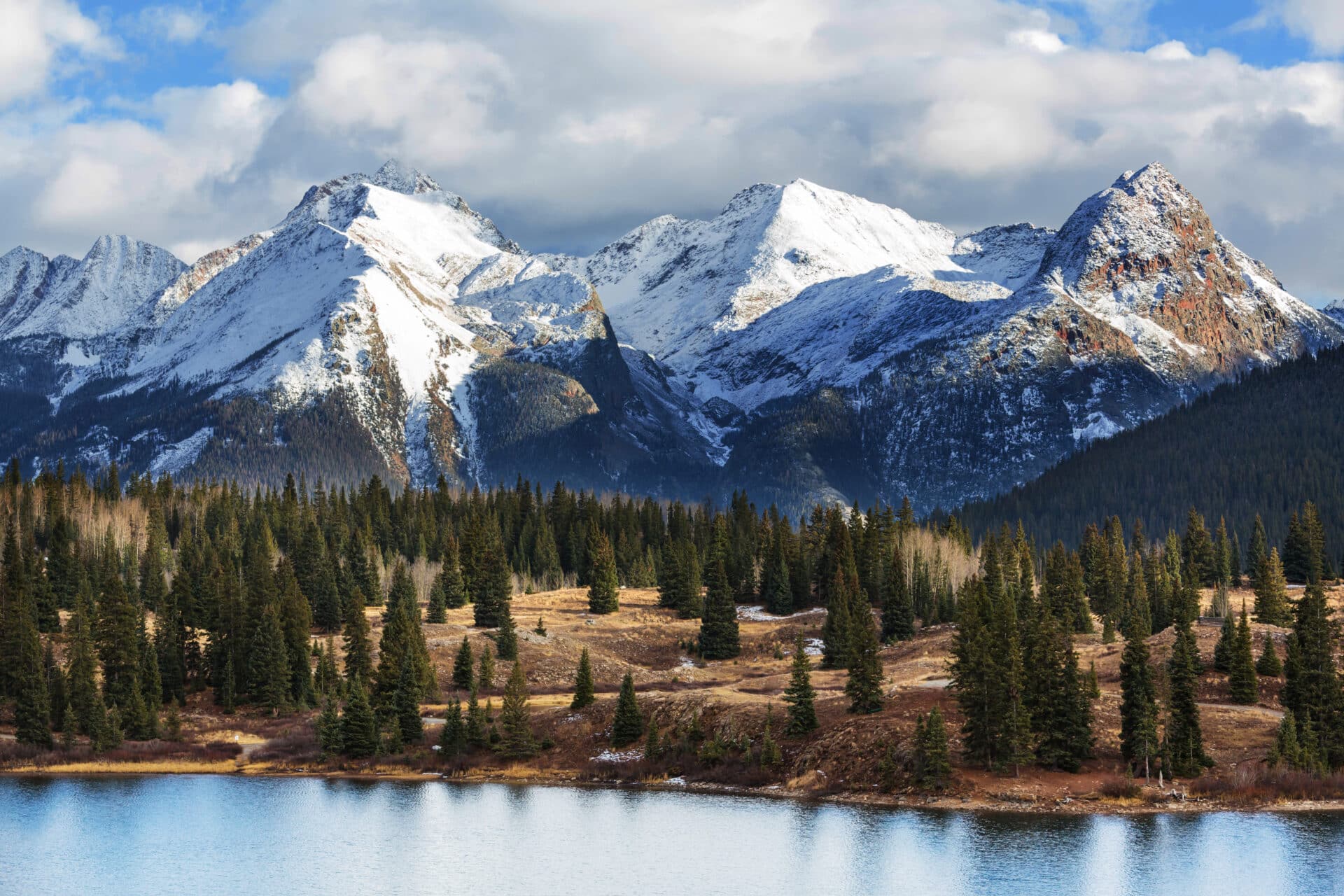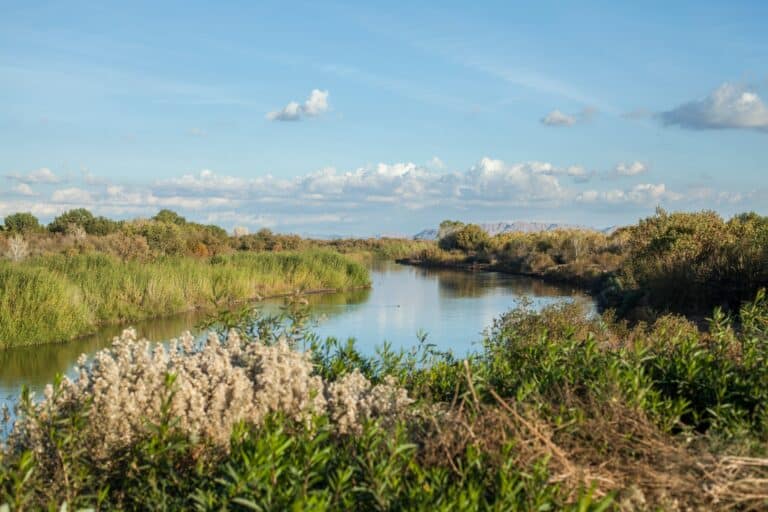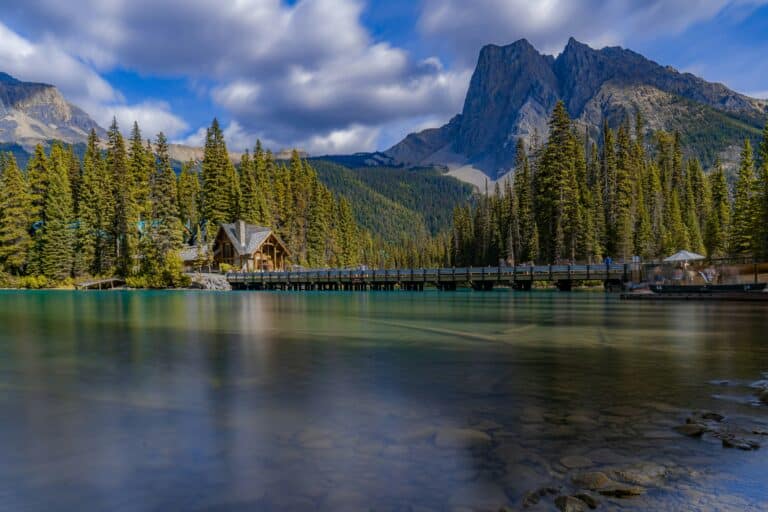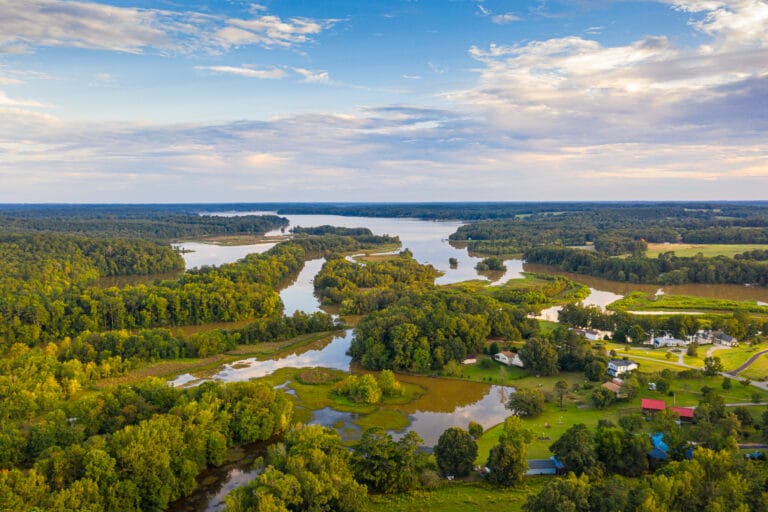Majestic mountains, rolling plains, undeveloped forests, quaint towns—if you’re interested in buying land in Colorado, you likely already know it offers diverse terrain and unique landscapes. As the eighth largest state, Colorado is one of the best western regions to purchase land, allowing you to go off-grid, invest, or build your dream home (or all three).
Regardless of whether you’re a first-time land buyer or an experienced land owner, we’re here to help you make this important purchase with preparation and confidence. With the right tools, you’ll be positioned to find a property or buy land that aligns with your goals—and your budget.
Here’s everything to know about buying land in Colorado, featuring trusted tips from the experts at Land.com.
Why So Many People Are Buying Land in Colorado
There are many reasons why buying land in CO is increasingly popular. As we mentioned, it’s an environmentally diverse state, with no end to its beautiful scenery and stunning landscapes. If you’re moving to Colorado to get your fix of mountain views, we get it.
Because it’s a nature-forward state, Colorado is perfectly aligned with an outdoorsy lifestyle and recreational land. Hiking, biking, skiing, rafting, hunting, rock climbing, camping—you name it, you can do it in the Rocky Mountain State. Small mountain towns offer idyllic living surrounded by nature, and even major cities are never too far from outdoor fun.
In addition to residential value, Colorado land also has long-term investment potential. Due to the outdoor tourism market, there’s growing interest in buying land for apartment rentals, ski cabins, camp sites, and more. Since there are different activities to enjoy in every season, Colorado offers year-round recreational and investment opportunities. Plus, as small towns grow and see more tourists, you can expect increased demand for other commercial investments. From Colorado Springs to Boulder, land buyers will find abundant opportunities throughout the state—and if you’re still deciding where to buy land in Colorado, these vibrant cities and surrounding areas are a great place to start..
The Different Types of Land You Can Buy in Colorado
Whether you’re searching for a homestead or in the market for an investment property, there are many types of land for sale in Colorado. Land buyers can find the following property types:
- Residential land – If you want to live in Colorado, you’re most likely looking for residential land. You can buy land with a home already built, or purchase undeveloped acreage and build your dream home. Just be sure that the land is zoned for residential living—more on that below.
- Recreational land – This refers to land that’s used for outdoor activities or leisure, such as hunting, hiking, and camping. If you live in the city and want a weekend getaway spot, a residential cabin can double as recreational land. Tourist rentals and activities also make great recreational property investments.
- Agricultural land – While Colorado is best known for its mountains, it also has a thriving agriculture industry, with over 30 million acres of farmland statewide. It’s number one in the nation for proso millet production, and other top agricultural commodities include cattle, dairy, corn, winter wheat, and peaches. The Colorado wine industry, including wine tourism, is also a booming market. You can find agricultural land anywhere in the state, with the highest concentration of farms in the northeast region.
- Investment property – This can look different depending on your investment goals. A common type of investment land is tourist property (like campgrounds or seasonal apartments) that owners rent out but don’t live in. Landowners can also purchase undeveloped land, build on it, and sell it at a profit.
- Off-grid land – Any of the above types of acreage in Colorado can be off-grid. It’s as much a lifestyle as it is a property choice, so give yourself ample time for planning before you set up your remote home, cabin rental, hunting lodge, and more.
The right acreage for you depends on your short- and long-term goals. We recommend making a clear plan before signing on the dotted line and starting your land ownership journey.
Don’t Skip This: Zoning Laws, Permits, and Land Use Explained
Understanding and completing all necessary paperwork is crucial to setting yourself up for success when it comes time to solidify your land purchase. That’s because local and state regulations determine what buyers can use their land for, what they can build on it, and more.
When buying land in Colorado, keep the following in mind:
- Zoning laws – Zoning determines the type of land you’re buying based on how you can use it. Can you live on it? Can you build structures? Can you run a commercial business? Can you start a farm? Many regions permit mixed-use zoning, allowing for a residential homestead on a farm, for instance, or a tourist rental with recreational outdoor activities.
- Permit requirements – Even if land is zoned for a certain use, you may still need a permit to move forward. For instance, building permits are given for the construction or renovation of property. If you’re purchasing hunting land, be aware that you’ll need a hunting license in Colorado.
- Land use regulations – In Colorado, land use regulations are determined locally by county. Examples of land use codes include subdivision regulations, impact fees, sign permitting, and more. Land use regulations can have a range of impacts, so it’s crucial to research the specific laws in the county where you’re purchasing property.
Want someone else to figure out all the bureaucratic red tape? Partner with a local Land Pro who knows the ins and outs of local regulations. They’ll help you every step of the process, so you can focus more on your dream property and less on filling out paperwork.
Water Rights in Colorado: What Every Buyer Should Know
Colorado is home to a unique water rights system that all prospective landowners should be aware of. Water usage is controlled by the Prior Appropriation System, which is often referred to simply as “first in time, first in right.” To break it down, this means that the first person to appropriate water (take it from a stream) and put it to a beneficial use has the first right to that particular water and stream system. After court approval, you become the senior water rights holder, which gives you priority rights above other water users on the same stream system.
Wellwater is also affected by these water rights laws. Since well pumping can cause stream depletions, well permits are often contingent on having a protective augmentation plan in place for the senior rights holder. In most cases, only small residential and livestock wells are exempt from this regulation.
There are seven water courts in Colorado, which handle water rights applications, water allocations, and senior water rights. We recommend land buyers connect with their local water court to verify water access and ownership before purchasing.
What Affects the Price of Land in Colorado
Land prices across Colorado can vary based on a variety of factors. Among other variables, land price is determined by:
- Location – When it comes to location, there’s no hard and fast rule that influences price. However, land in a quaint mountain town will have a price tag that reflects the stunning views and outdoor access. Proximity to ski resorts and national parks will also drive up land prices, as will tourist demand in the area.
- Size – A general rule of thumb is that bigger properties are pricier, while smaller acreage is more affordable.
- Access and infrastructure – Here, we’re talking about access to the three Rs of land buying: roads, resources, and recreation. A gorgeous off-grid cabin or private hunting land may look great on paper, but if you can’t access the property, you won’t be able to use it. Everyday utilities like water, electricity, and sewage are also key considerations, as they can be costly to install in remote areas if infrastructure isn’t already in place.
- Land use – Zoning permissions and land use regulations will play a significant role in a property’s development potential and long-term value. This, in turn, can impact the selling price.
As you start your land buying journey, create a detailed budget that accounts not only for the sticker price of the raw land but also any potential future costs and development expenses.
Smart Steps to Take Before You Sign Anything
Before purchasing land in Colorado, make sure to get a full official rundown of the property. These due diligence steps include:
- Getting a land survey
- Checking utility and infrastructure access
- Researching easements
- Verifying water rights
- Reviewing deed restrictions
Local county offices will have all the documents you need, and a broker can help streamline the process.
Why a Local Land Expert Can Make All the Difference
When making such an important decision, particularly around land ownership, you want to feel fully informed, prepared, and confident. That’s why we recommend partnering with local land brokers in the Colorado land market. A Land Pro can help you conduct the proper research, ask the right questions, negotiate with the seller, and avoid any potential red flags throughout the process.
If you’re ready to get started, browse land for sale in Colorado on Land.com, the nation’s leading network for listing rural real estate. You’ll find acreage in every corner of the state, from mountainous recreational plots to quiet suburban homesteads, and our extensive search filters make it easy to narrow down price, location, size, land type, and more.
Colorado land is calling—start your search today.
Sources:
United States Census Bureau. Colorado. https://data.census.gov/profile/Colorado?g=040XX00US08.
State of Colorado. Outdoor Activities. https://co.colorado.gov/outdoor-activities.
State of Colorado. A Snapshot of Colorado Agriculture. https://leg.colorado.gov/sites/default/files/r23-286_agricultural_economy_in_colorado_0.pdf.
Colorado Parks & Wildlife. Hunting. https://cpw.state.co.us/hunting.
The Colorado Division of Local Government. Land Use Codes. https://dlg.colorado.gov/land-use-codes.
Colorado Department of Natural Resources. Water Rights. https://dwr.colorado.gov/services/water-administration/water-rights.
Colorado Department of Natural Resources. Beginners Guide to Colorado Water Rights. https://drive.google.com/file/d/14r6HBwqebBwSE60yuiUu1smmtDONJbu2/view.



